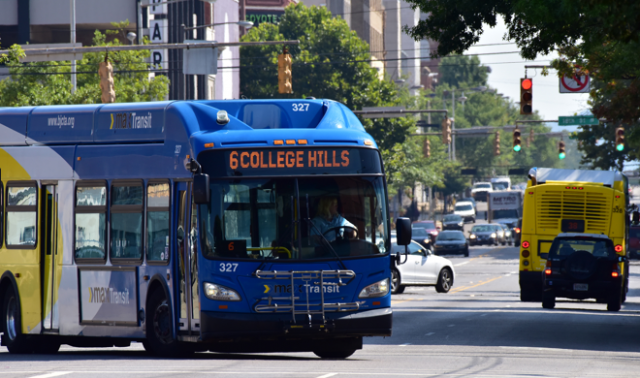By Ryan Michaels
The Birmingham Times
The City of Birmingham, in partnership with the Birmingham-Jefferson County Transit Authority (BJCTA), will receive a $800,000 federal grant to study citywide transportation issues and help residents with better access to jobs and other services.
The grant is part of $185 million in awards for 45 communities announced Tuesday by U.S. Transportation Secretary Pete Buttigieg.
Many Birmingham neighborhoods have been “cut off from one another by highway and rail infrastructure” and the federal program seeks to “stitch” those neighborhoods back together, said Mayor Randall Woodfin.
“We are grateful to the U.S. Department of Transportation for investing in Birmingham’s efforts to enhance transit, pedestrian and cycling infrastructure for our residents and increase access to goods, services, and jobs,” said Woodfin in a statement.
Charlotte Shaw, BJCTA president and CEO, said the funding is “another significant win for transit in Birmingham” and that the partnership between the authority and the city can serve as a model going forward.
“This example of integrated planning with the City of Birmingham demonstrates how we can advance future investments,” said Shaw in a statement.
The City of Birmingham and BJCTA each pledged $100,000 in matching funds to support the efforts.
Over 75 percent of Birmingham’s original neighborhoods are bordered or intersected by an interstate, rail line, and/or major arterial roadway. These dividing facilities, and the resulting car-focused roadway design, perpetuate citywide car dependency.
Most Birmingham residents commute to work by car, with over 80 percent driving alone (U.S. Census Bureau). While 8 in 10 metropolitan area workers drive to work, those without a car have limited transportation options which means transportation and economic mobility are often linked.
The grant, from a first round of funding for the Reconnecting Communities Pilot Grant Program, includes six capital construction grants and 39 planning grants. It will advance data-driven transportation recommendations in the nine ImagineBham plans and other assessments to mitigate the negative impact of interstates, railroads, and major arterial roadways.
The proposed Transportation Capital Investment Plan (TCIP) will reallocate space for public transportation, pedestrians, and cyclists, rather than fueling an expanding roadway network that encourages sprawling land use.
The TCIP will identify transit-centered, multimodal projects that would have the greatest impact on citizen mobility as well as access to jobs, health care, grocery stores, schools, places of worship, entertainment and green spaces.
Additionally, the plan will seek development centered around transit and begin Birmingham’s transformation from a car-oriented city to one where residents can rely on public transportation, according to the city.
Birmingham City Councilor Darrell O’Quinn, who chairs the council’s Transportation Committee, said a lack of connectivity keeps many residents from reaching jobs and other areas they need.
“Most people do not have access to all of the goods and services that they need for decent quality of life within walking distance,” O’Quinn said. “Our streets and highways are how we get from where we are to where we want to go, and that means employment, education, health care, access to healthy foods, childcare, a lot of things.”
James Fowler, director of the city’s Department of Transportation, said the city wants “to create a truly multimodal city where people can easily walk, take public transportation, or ride their bike to get where they are going. This grant will help us build that vision. We look forward to working on this closely with the BJCTA to build a roadmap for a more mobile Birmingham.”





